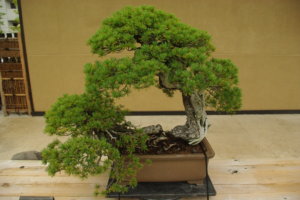Sense of Belonging in Japan
CONTENTS
Sense of Belonging in Japan on Business
The Importance of Belonging
It is hard to overestimate this aspect of Japanese culture, particularly since it differs so completely from the experience of most Westerners. For a great many generations, the Japanese have had strength in groups and in collective decision-making. Under the traditional rice farming economy, to dovetail one’s own individual wants and needs to the collective decision-making of the village meant survival, and to go it on one’s own might mean starvation.
The Pioneer Spirit
By contrast, American culture celebrates the individual striking out alone against the wilderness, the independent-minded pioneer spirit. “Shoot first, ask questions later” says quick decision-making is good decision-making, even if the consequences are fatal. Of course, Americans also rely on groups and consensus, but our mythology praises the independent genius.
Groups That Matter

Japanese think very carefully about which groups they will join, because any worthwhile group is difficult to enter, and also difficult to change or leave. For example, choosing permanent employment is critical, because it is supposed to last a lifetime. The choice to leave an unfulfilling permanent job is a difficult one, because not only are the individual and family affected, but may also affect relationships with other groups, such as university teachers and friends who had supported their job search. By contrast, Americans’ choices of groups require a relatively low commitment. If a person doesn’t like their job, they can quit and get another one just as good. Americans are adept at entering new groups, functioning well and then moving on. Sometimes Japanese are reluctant to accept Americans as insiders because they have heard that once you start to count on Americans they leave.
If we assume that Japanese groups should be as easy to enter as our groups, we will be disappointed. How can we possibly expect to be as trusted as a Japanese colleague who has worked side by side with them for 20 years? And after just six months on the job? Not possible. Recognize that there will be times when you are excluded, and look for other ways of increasing your trustworthiness.
Independent Opinions
In America, a person is expected to have an opinion, his or her own unique opinion, even if he or she knows a few of the facts of the matter. It is as though in American schools we learn, “I think therefore I debate.” Somehow we come to feel that a person who cannot quickly articulate his or her own opinion must be lacking in either intelligence or character. I think that is why we can be too quick to judge our Japanese colleagues’ intelligence by their willingness to assert their opinions, and conversely to negatively judge Japanese who are either unwilling or unable to express an opinion.
The Opinion of the Group
In Japanese decision-making style, Japanese do not always lead with their entire personal opinion. The collective opinion or decision is formed by gradually building on input from everyone. Once the group’s opinion has gelled, then it can be articulated to outsiders if necessary. A person who leads from very strong opinions and refuses to budge in spite of being in the minority, far from being considered a strong independent thinker, is seen as someone who is difficult to work with.
I Exclude You and You Exclude Me
Be aware of the times when the Japanese feel excluded. For example, there may be meetings when the agenda is thrown out the window and the Americans are debating a mile a minute on a topic about which the Japanese have no idea. If you show your willingness to make the effort to communicate in a more structured way for their benefit, I promise you that you will be more in the loop.
Belonging on the Team
If you feel that you are on the outside of the Japanese group and would like to be more involved, first of all pay attention to developing good relationships from your side, such as inviting Japanese to eat and making sure they have what they need. Also as in the story of Henry, be aware that sometimes the Japanese may be showing their appreciation by giving you a gift or doing you a favor that you don’t necessarily want or need.
Japanese Collectivism Is Individualism in a Group

However, according to Toshio Yamagishi (Ph.D. in Sociology, University of Washington; Assistant Professor, Faculty of Letters, Hokkaido University, and Faculty of Sociology, University of Washington; died 2018),
He rejects the common belief that the Japanese are "collectivist" and value the interests of the group over the interests of the individual, stating that the reason for Japanese collectivism is that it is most advantageous for each individual. In other words, the purpose of collectivist culture of Japanese is to see how they can improve their position in the group like company, and Japan's collectivism is in fact individualism within the group.
Japan's collectivist culture is probably doomed to collapse in the wake of the post-bubble globalization economy. Because of the global competition, belonging to a group (company) does not necessarily lead to one's own interests. And if the culture becomes one in which it is more advantageous for each individual to make his or her own decisions beyond the boundaries of the group rather than to check and balance within the group, then only the most productive companies will survive.


